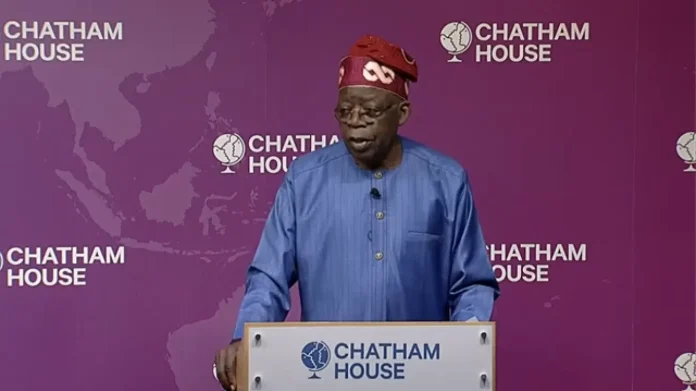Chatham House, a UK-based think tank focused on international affairs, has warned the Nigerian government against efforts to strengthen the naira, suggesting that the currency’s depreciation has made Nigeria’s economy more competitive.
In an article titled “Nigeria’s Economy Needs the Naira to Stay Competitive,” Chatham House emphasized the need for the government to resist the temptation to appreciate the naira in its bid to combat inflation, arguing that sustainable, long-term growth relies on maintaining the current currency valuation.
The report highlights the significant devaluation of the naira under President Bola Tinubu’s reforms, which has seen the currency drop from around N460 to nearly N1,500 to the dollar since the 2023 elections. This adjustment is noted as one of the largest currency shifts in years, surpassed only by the Ethiopian birr.
“With the naira’s depreciation, Nigeria is arguably more competitive now than at any time in the past 25 years,” the report stated.
Chatham House pointed out that in developing economies, the exchange rate of the dollar is crucial. If dollars are too inexpensive, imports may surge, creating financial vulnerabilities. “An increase in imports boosts a nation’s trade deficit, which can become challenging to finance if global creditors’ risk appetite diminishes, often leading to financial instability,” the report warned.
The think tank also noted that excessively low dollar valuations incentivize capital flight, where businesses and individuals seek to transfer wealth out of the country to safer environments, jeopardizing economic growth.
Despite these concerns, Chatham House highlighted two significant positive outcomes from the naira’s devaluation: first, an improvement in Nigeria’s balance of payments, which is now in surplus, and second, a return of capital to the country. Consequently, the Central Bank of Nigeria (CBN) has seen its foreign exchange reserves increase to over $40 billion, bolstering financial stability.
The report added that the naira’s depreciation has significantly benefited Nigeria’s budget. The World Bank has indicated that a misaligned exchange rate has adversely affected the country’s fiscal standing more than the costs associated with government fuel subsidies.
“As the naira declines—alongside the removal of petrol subsidies—Nigeria’s fiscal deficit has decreased from 6.4% of GDP in early 2023 to 4.4% in early 2024,” the think tank noted.
While acknowledging that controlling inflation is a pressing challenge, especially for the urban poor, Chatham House advised that a stronger naira could reduce inflation by making imports less expensive in local currency. However, they cautioned that this approach could negate the competitive advantages gained from currency depreciation.
Instead of focusing on a stronger naira, Chatham House proposed that a more effective path to reducing inflation would involve enhancing the monetary transmission mechanism and increasing public revenues.












